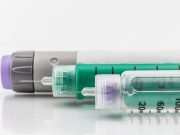PSMA PET superior to MRI for correct identification of dominant nodule, laterality, and extracapsular extension
By Elana Gotkine HealthDay Reporter
THURSDAY, July 11, 2024 (HealthDay News) — For men undergoing locoregional staging of prostate cancer, fluorine-18 prostate-specific membrane antigen-1007 positron emission tomography/computed tomography (18F-PSMA-1007 PET/CT) is superior to multiparametric magnetic resonance imaging (MRI), according to a study published online July 1 in JAMA Oncology to coincide with the annual meeting of the Canadian Urological Association, held from June 29 to July 1 in Victoria.
Nikhile Mookerji, M.D., from the University of Alberta in Edmonton, Canada, and colleagues determined the accuracy of 18F-PSMA-1007 PET/CT compared to multiparametric MRI in the primary locoregional staging of intermediate- and high-risk prostate cancers in the Next Generation Trial, a phase 2 study. Patients underwent all imaging studies and radical prostatectomies at two tertiary care hospitals; 134 of 150 eligible men with prostate cancer underwent radical prostatectomy.
The researchers found that compared with MRI, PSMA PET was significantly superior for the accurate identification of the final pathological tumor stage (45 versus 28 percent, respectively). In addition, PSMA PET was significantly superior for the correct identification of the dominant nodule (94 versus 83 percent), laterality (64 versus 44 percent), and extracapsular extension (75 versus 63 percent) compared with MRI but was not significantly superior for correct identification of seminal vesicle invasion.
“Future research should address the accuracy of combining PET/CT and MRI as well as cost effectiveness of PET/CT for the primary staging of men with prostate cancer,” the authors write.
Copyright © 2024 HealthDay. All rights reserved.



















